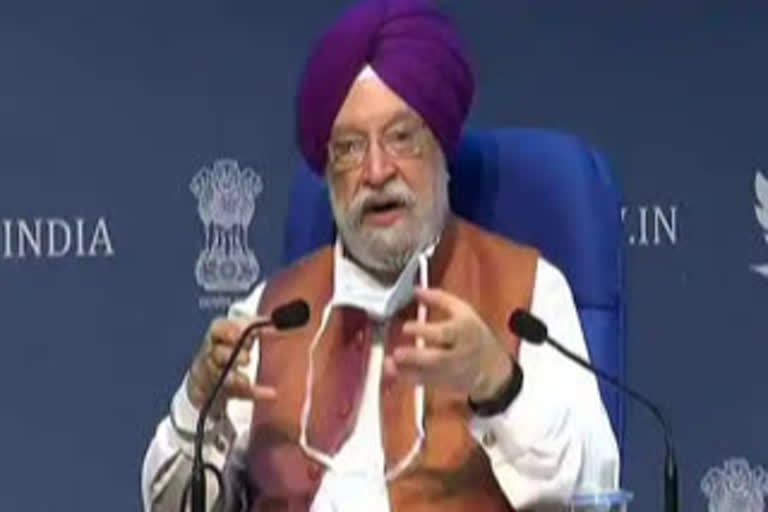New Delhi: Amid fuel prices continuing to remain stubbornly high despite international rates falling, Petroleum Minister Hardeep Singh Puri on Thursday said over Rs 1.5 lakh crore of oil bonds issued by the previous UPA government remains to be paid, limiting fiscal space and restricting financial freedom of oil firms.
A day after Congress leader Rahul Gandhi launched a scathing attack on the government for raising cooking gas prices, Puri took to Twitter to blame the "rampant impunity and policy paralysis" of the UPA government.
"In 'India's Lost Decade' known for rampant impunity & policy paralysis, UPA Govt saddled future govts with Oil Bonds. More than Rs 1.5 lakh cr of these remain to be repaid, thus tying up crucial resources, limiting fiscal space & restricting financial freedom of OMCs," he tweeted.
Puri, a 1974 batch Indian Foreign Service officer who served as the Permanent Representative of India to the United Nations from 2009 to 2013, said the exploration and production (E&P) sector was "fund-starved".
"The important E&P sector was fund-starved. As a result, our import bill continues to be high. Nearly Rs 3.6 lakh cr profits of oil companies was instead used for price stabilisation by a remote-controlled govt of 'economic experts' to hide behind a 'All is Well' smokescreen," he tweeted.
On Wednesday, Gandhi had attacked the government over the rising fuel prices saying Rs 23 lakh crore has been collected in the last seven years by increasing prices.
His party rejected the oil bond burden theory, first floated by Finance Minister Nirmala Sitharaman, for not lowering the prices, saying the Rs 1.3 lakh crore are not even due for payment so far and the government had collected much more revenue in seven years from excise duty hikes.
Last month, Sitharaman had ruled out a cut in excise duty on petrol and diesel to ease prices, saying payments in lieu of past subsidised fuel pose limitations.
Read: 16 out of 78 Afghanistan evacuees test Covid positive
Petrol and diesel as well as cooking gas and kerosene were sold at subsidised rates during the previous Congress-led UPA government. Instead of paying for the subsidy to bring parity between the artificially suppressed retail selling price and the cost that had soared because of international rates crossing USD 100 per barrel, the then government issued oil bonds totalling Rs 1.34 lakh crore to the state-fuel retailers.
